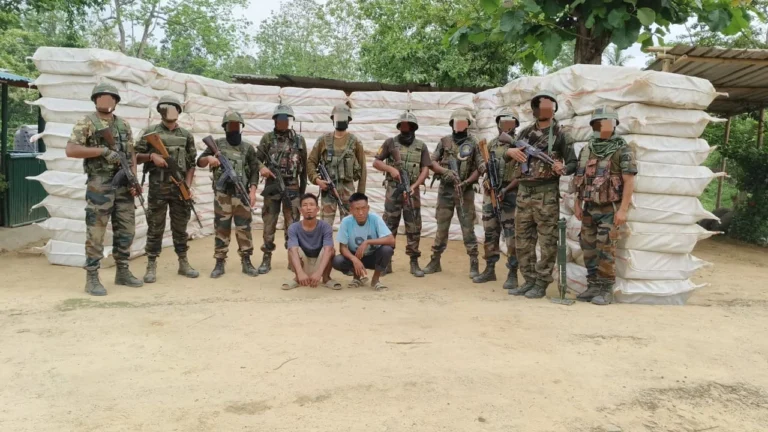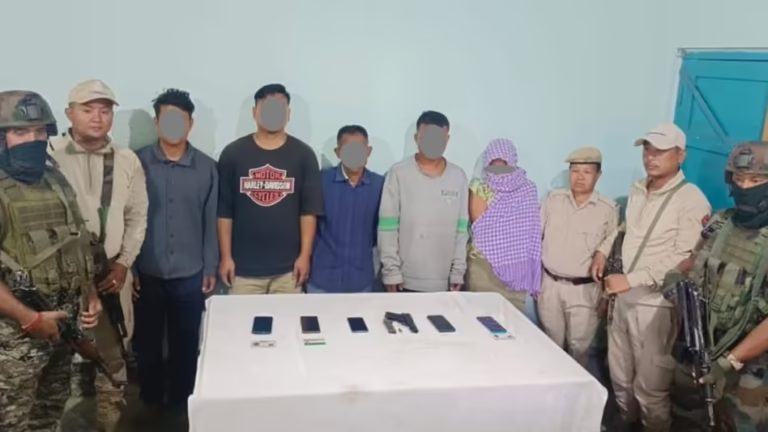Can’t Be Silenced: Manipur Congress Responds to ED Summons of Party Chief
Summary of the News
The Manipur Congress has strongly condemned the Enforcement Directorate’s (ED) summons to the party’s chief, describing it as politically motivated and a tactic to silence opposition voices. The ED’s action, seen in connection with the financial investigations, has sparked sharp criticism from the Congress, which believes it is being targeted for raising critical issues in the state. The party vows to stand firm, asserting that these moves won’t deter their efforts to hold the government accountable.
Introduction: Political Storm Brewing in Manipur
Politics in India is no stranger to controversy, and Manipur is currently witnessing a rather intense phase. The state’s Congress party is in the spotlight, not for electoral victories or policy discussions, but due to a serious accusation made by the Enforcement Directorate (ED). Their leader has been summoned, raising questions about the impartiality of government agencies and the increasing trend of using investigative bodies as tools for political gain.
In a state like Manipur, where politics is already deeply entwined with social and ethnic challenges, this latest development has added a new layer of tension. The Congress, feeling targeted, is not taking this lying down and is determined to fight what they call a politically driven agenda. But what’s really going on? Let’s break it down.
The ED Summons: What Triggered It?
Financial Investigations or Political Vendetta?
At the center of this controversy lies a financial investigation launched by the Enforcement Directorate. The ED is known for probing into money laundering, illegal financial transactions, and other economic offenses. This time, however, they have summoned the Congress chief of Manipur, a move that has drawn widespread criticism from the party.
So, why now? The Congress believes that the timing of this summons is no coincidence. It comes at a moment when the party has been actively criticizing the current government on various fronts—be it corruption allegations, ethnic unrest, or governance failures. This summons, they claim, is an attempt to muzzle the opposition and prevent them from continuing their vocal dissent.
Allegations of Misuse of Government Agencies
This isn’t the first time a political leader has faced an investigation at a critical time. Over the past few years, many opposition leaders in India have found themselves facing legal scrutiny just as they were raising their voices against the central government. The Congress has made it clear that they view this as part of a broader pattern, where government bodies are being used to intimidate and silence opposition figures.
But is this truly the case, or are these investigations justified? To the Congress, the answer is clear—it’s an attack on democracy. But for the ruling government, the ED’s investigations are a necessary step in maintaining law and order.
Manipur Congress Stands Strong: “We Won’t Be Silenced”
A Unified Front: Congress Refuses to Back Down
Rather than cowering in the face of these allegations, the Congress has come out swinging. Top leaders in the party have openly criticized the ED’s actions, calling them politically motivated. The Manipur Congress has emphasized that their fight is for the people of the state and that they won’t allow these “tactics” to divert attention from the real issues facing the region.
In a public statement, the party has reiterated its commitment to exposing corruption, raising awareness about the ethnic tensions in the state, and holding the government accountable for what they see as failures in governance. For the Congress, the ED summons is just another hurdle to overcome in their fight for justice and transparency.
Public Reactions and Support
Interestingly, this move by the ED may have unintended consequences. Far from isolating the Congress or weakening its influence, it has galvanized its supporters. Across the state, party members have organized rallies and meetings, vowing to stand by their leader and continue their political activism despite the pressures they face.
The Congress’s strong reaction has also sparked debates among political analysts. Some believe that the party is using the ED’s actions to gain sympathy and rally support, while others view it as a genuine case of political victimization. Either way, the ED summons has thrust the Congress into the spotlight, and it appears the party intends to use this opportunity to its advantage.
What’s at Stake for Manipur’s Political Landscape?
An Already Fragile Situation
Manipur is no stranger to political turmoil. Over the past few years, the state has dealt with significant ethnic tensions, political rivalries, and challenges in governance. For many citizens, the growing distrust in government institutions is adding to the sense of instability.
The Congress, through its vocal opposition, has become a major player in the state’s political scene, often raising questions about the current government’s handling of ethnic conflicts, economic development, and administrative decisions. For the ruling party, any blow to Congress’s credibility could strengthen their own hold over the state’s political landscape.
The Role of Investigative Agencies in Politics
The ED’s summons in Manipur is part of a larger trend where investigative agencies have become central figures in political battles. Across India, there are several instances where opposition leaders have been probed, leading to accusations that these agencies are being used as tools for political control.
While these investigations are legally justified in many cases, the question remains: is there a selective approach in how and when these investigations are conducted? In Manipur, this issue has taken center stage as the Congress accuses the ED of acting on behalf of the ruling party. This perception, whether true or not, is likely to shape political discourse in the state for some time to come.
The Bigger Picture: Implications for Indian Politics
A Chilling Effect on Opposition Voices?
One of the most concerning aspects of the ED’s action is the potential chilling effect it could have on opposition voices, not just in Manipur but across India. When opposition leaders are subject to frequent investigations and legal challenges, it sends a message to others—criticize the government at your own risk.
For democracy to function properly, opposition voices must be free to express dissent without fear of reprisal. If political leaders feel they are being targeted for their criticism, it undermines the very foundation of democratic governance. The Congress has made this argument repeatedly, and this latest ED summons has only amplified their concerns.
The Future of the Congress Party in Manipur
For the Congress party, this is a make-or-break moment. If they can successfully navigate the ED summons and use it as a rallying point, they may come out of this even stronger. However, if the investigation drags on and leads to further legal challenges, it could weaken their influence in the state.
Ultimately, the Congress’s future in Manipur will depend on how well they manage this crisis and whether they can continue to position themselves as the voice of the people in the face of government opposition. With elections always looming in the background, this is a critical period for the party.
Conclusion: The Battle for Manipur’s Political Soul
The ED’s summons to the Manipur Congress chief is not just about one investigation—it’s part of a larger battle for the political soul of the state. As the Congress pushes back against what it calls political victimization, the ruling government continues to assert its legitimacy. At the heart of it all are the people of Manipur, who are watching closely to see how their leaders respond to the challenges facing the state.
Whether this episode strengthens or weakens the Congress, one thing is clear: the political landscape in Manipur is shifting, and how the parties navigate this moment could have long-lasting effects on the state’s future.
FAQs
- What is the reason behind the ED summons to the Manipur Congress chief?
The ED has summoned the Congress chief as part of a financial investigation, but the Congress claims it is a politically motivated move to silence the opposition. - How has the Congress responded to the ED summons?
The Congress has strongly condemned the action, calling it a tactic to stifle dissent and weaken the party’s efforts to hold the government accountable. - Has this impacted the public’s view of the Congress in Manipur?
If anything, the ED summons seems to have rallied public support around the Congress, as many view the party as being unfairly targeted. - Is this part of a larger trend of political investigations in India?
Yes, opposition leaders across the country have faced similar investigations, leading to accusations that investigative agencies are being used for political purposes. - What are the broader implications of this for Indian democracy?
Many worry that these investigations could have a chilling effect on opposition voices, undermining the ability of political parties to hold the government accountable.





